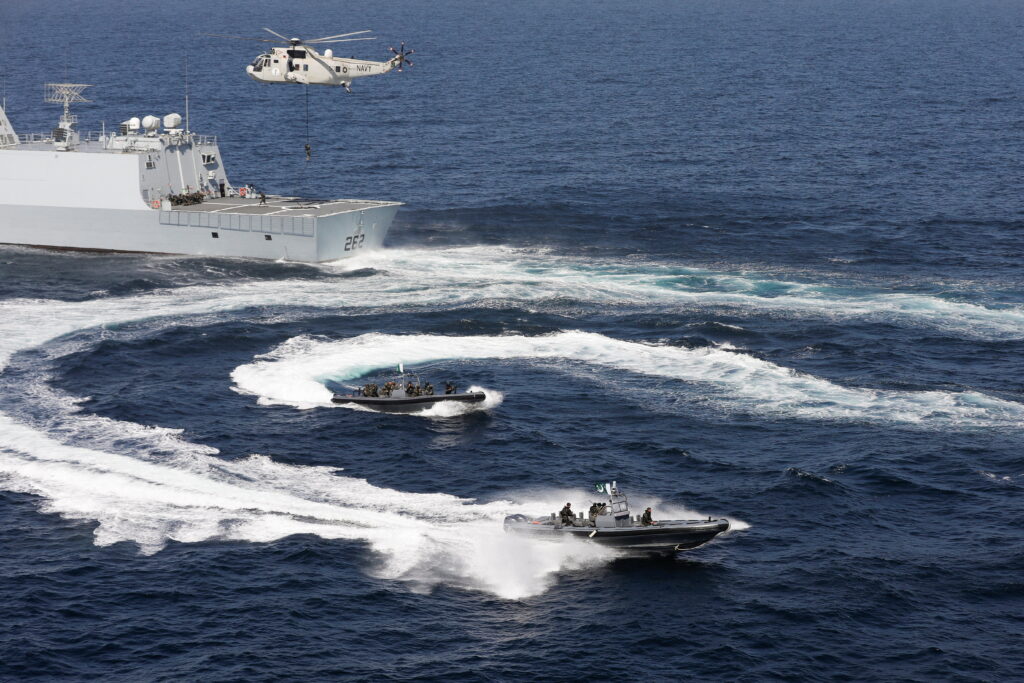News reporting frequently portrays piracy and armed robbery (PAR) at sea in Southeast Asia as an escalating concern. The supposedly growing presence of pirates is then linked to broader analyses of regional cooperation. Southeast Asian states, it is suggested, are not cooperating sufficiently on regional security nor adequately involving private sector actors in broader security governance processes.
But this coverage overstates the threat of regional PAR. Data reporting mechanisms in the region have been bolstered since the mid-2000s, meaning that a higher number of reported incidents could simply reflect enhanced data collection. As the maritime law enforcement capacities of Southeast Asian countries have steadily improved, deadly PAR incidents have been effectively eliminated.
Additionally, private actors, most notably insurance and shipping companies, have come to play an increasingly important role in the regional maritime security architecture. States and shippers increasingly cooperate by developing and implementing regulatory frameworks while insurers shape the behaviour of shippers, for instance by remodelling insurance premiums. Insurers and shippers have transitioned from beneficiaries of good order at sea to active shapers of this order.
In the past, regional states frequently sought to curtail the role of some private actors. PAR in Southeast Asia began to take off in the 1990s and was aggravated by the effects of the Asian Financial Crisis and an increase in China-bound trade passing the Straits of Malacca and Singapore. In response, industry actors began hiring private maritime security companies (PMSCs), which provided services such as training, protected offshore installations and partook in PAR-related rescue operations.
But by the mid-2000s, Indonesia and Malaysia began clamping down on PMSCs, and legal frameworks have remained restrictive in both countries since. PMSC legislation is more relaxed in Singapore and the Philippines. Demand for PMSCs has also plummeted as state capacities improved. In June 2005, concerns about potential terrorist attacks on regional shipping lanes led the Lloyd’s Market Association, a London-based insurance market, to declare the Straits of Malacca and Singapore a high-risk zone, raising insurance premiums for regionally active members.
In response, Indonesia and Malaysia created law enforcement units dedicated to securing the Malacca Strait, while Indonesia, Malaysia, Singapore and Thailand intensified multilateral security cooperation in the straits. Most regional countries also joined the newly formed Regional Cooperation Agreement on Combating Piracy and Armed Robbery against Ships in Asia (ReCAAP), which gathers data on regional PAR. Although Indonesia and Malaysia did not join ReCAAP, they have both begun extensively collaborating with the organisation.
The Lloyd’s Market Association’s decision marked an inflection point at which economic pressure from industry actors began to play a major role in reshaping security practices. Alongside investments in maritime capabilities that aim to bolster states’ ability to respond to Chinese incursions and other security challenges, states’ maritime security capacities have grown since the mid-2000s.
While the role of PMSCs has been undermined, international shipping legislation has transformed insurers and shippers into key security stakeholders. Following the 9/11 attacks in 2001, PAR came to be seen as an international security threat. The United Nations began introducing new frameworks to regulate global shipping. Shippers are now obliged to implement specific security measures, including following regulations on the staffing of security personnel and the biometric identification of seafarers. As a result, anti-PAR policies now rely on close cooperation between state and industry actors.
The wider shipping industry has simultaneously shaped the regulatory agenda of states and multilateral organisations. 9/11 drove firms to rethink the insurance and reinsurance market and begin focusing more extensively on proactively identifying and responding to geopolitical risks. The PAR-focused best management practices published by a number of industry actors aim to reduce corporate risk and have been adopted by many firms operating in Southeast Asia. Similarly, industry associations have published best cybersecurity practices for their members.
Crucially, industry actors self-regulate in ways that support the policy agendas of multilateral organisations and governments while also partially informing regulatory agendas. As insurers and shippers have come to shape norms and regulations within the industry, they have emerged as key stakeholders shaping maritime security in Southeast Asia.
While pushing back against PMSC activity, states have ultimately not challenged the security role of insurers and shippers. Instead, they have actively promoted their functioning as governance actors. In a globalised economy, some — but not all — private actors increasingly occupy key governance functions.
Popular portrayals of PAR in Southeast Asia include some key misunderstandings. The regional PAR situation is generally improving, not deteriorating. Additionally, insurers and shippers have emerged as key actors in shaping regional maritime security alongside increasingly capable states. Southeast Asian states are often more flexible in their positions on the role of private actors than is commonly assumed.
Aaron Magunna is a PhD candidate at the University of Queensland.


The piracy and armed robbery situation in Southeast Asia is not deteriorating, as is often reported, but is instead improving. Insurance and shipping companies have emerged as significant contributors to maritime security, alongside regional states' strengthened maritime law enforcement capacities. Private actors occupy key governance functions and increasingly shape both norms and regulations in Southeast Asia's maritime security.